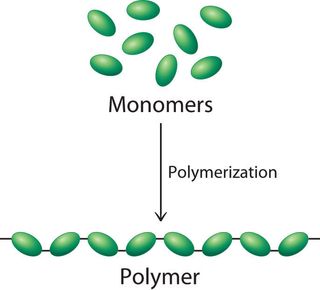Discovering the Varied Applications and Benefits of Polymers in Different Industries
Polymers, with their varied range of residential properties and performances, have come to be important in various sectors, each enjoying unique advantages from their application. From improving security and performance in the vehicle industry to changing medical devices in the medical care industry, polymers play a crucial function.
Automotive Sector Applications
Polymers play a crucial role in boosting the performance and durability of different components within the vehicle sector. These flexible products are extensively used in the manufacturing of various parts, varying from interior elements to under-the-hood applications. One noticeable use of polymers in the auto market remains in the production of light-weight components. By changing conventional steel components with polymer-based alternatives, automobiles can achieve enhanced gas efficiency without jeopardizing on toughness or security.

Healthcare Industry Advantages
In different health care applications, the benefits of using polymers are extensively identified for their varied variety of beneficial buildings. Polymers play an essential function in the health care market because of their adaptability, biocompatibility, and cost-effectiveness. Among the main advantages of polymers in health care is their capacity to be customized to details needs, such as flexibility, resilience, and biodegradability, making them optimal for a large variety of clinical applications.
Polymer-based products are thoroughly utilized in medical gadgets, such as catheters, implants, prosthetics, and drug delivery systems, due to their biocompatibility and ability to imitate natural cells. These materials can minimize the threat of sensitive responses or denials, boosting individual security and outcomes. Additionally, polymers are light-weight, making them appropriate for wearable medical devices and making certain person convenience.
In addition, polymers allow the development of cutting-edge treatment methods, such as hydrogels for cells engineering and nanocomposites for targeted drug distribution. Their simplicity of handling and sterilization makes them essential for preserving high standards discover here of health in health care settings. On the whole, the diverse benefits of polymers contribute dramatically to developments in clinical technology and individual treatment.
Environmental Benefits of Polymers

Moreover, polymers can add to energy cost savings due to their lightweight nature. In markets such as transportation, lightweight polymer materials can help in reducing gas intake and greenhouse gas exhausts. Additionally, polymers can enable the development of energy-efficient products such as insulation materials that improve energy preservation in structures.
Moreover, polymers play an important function in minimizing water contamination. The use of polymer-based filtration systems can properly get rid of contaminants and impurities from wastewater, safeguarding water sources and ecological communities. Generally, the environmental benefits of polymers make them valuable assets in advertising sustainability and environmentally friendly practices throughout different industries.
Polymers in Electronic Devices and Modern Technology
Considering the increasing demand for cutting-edge and sustainable services in contemporary markets, the integration of sophisticated polymer technologies in the world of electronics and technology has arised as a crucial technique for driving effectiveness and performance. Polymers have actually transformed the electronics industry by making it possible for the production of lighter, extra versatile, and resilient digital gadgets. From smartphones to medical devices, polymers play a crucial duty in enhancing item design and capability.
One significant benefit of polymers in electronics is their protecting buildings, which help shield delicate digital parts from environmental aspects and electrical interference. In addition, polymers are important in the growth of flexible screens, wearable modern technology, and printed dig this electronics, using endless possibilities for developing clever and interconnected gadgets.
Moreover, the use of polymers in electronic product packaging has actually resulted in improvements in miniaturization and thermal management, enhancing the general efficiency and reliability of electronic systems. As innovation remains to advance, the flexibility and versatility of polymers will unquestionably drive additionally technology in the electronics industry, shaping the future of innovation.
Function of Polymers in Building and Framework
The assimilation of innovative polymer materials in construction and infrastructure projects has reinvented the means frameworks are designed and integrated in contemporary times. Polymers provide many benefits in the building and construction sector as a result of their versatility, toughness, and cost-effectiveness. One crucial function of polymers in building is their use in coverings and sealants, providing defense against ecological variables such as dampness, UV radiation, and deterioration. Furthermore, polymers are used in the manufacturing of light-weight and high-strength composite materials, boosting the architectural honesty of buildings while reducing general weight.
Moreover, polymers play a crucial function in sustainable building practices by enabling the development of energy-efficient frameworks. Insulating materials made from polymers aid manage interior temperature levels, minimizing the need for heating and cooling systems and ultimately decreasing energy consumption - Polymers.
Final Thought
In verdict, polymers play an essential role in various industries such as auto, medical care, ecological, electronics, and construction. From boosting fuel performance in automobiles go to these guys to improving medical tools, polymers use various advantages.